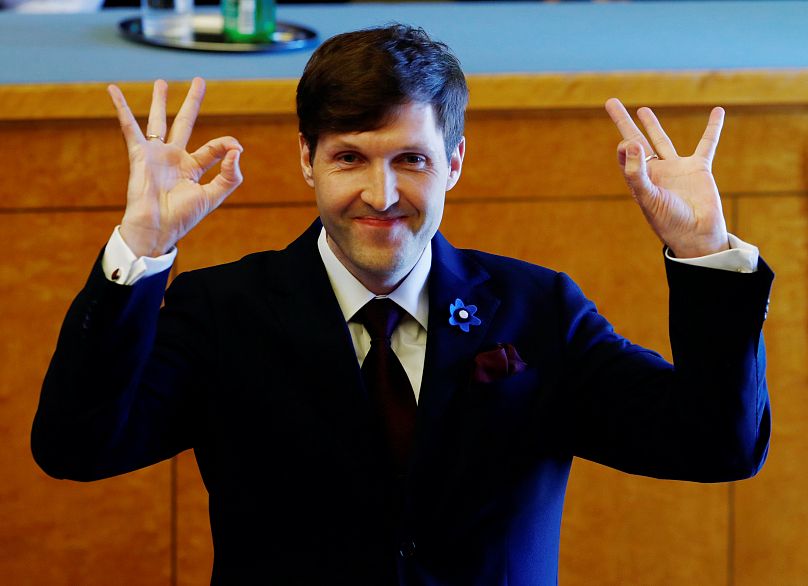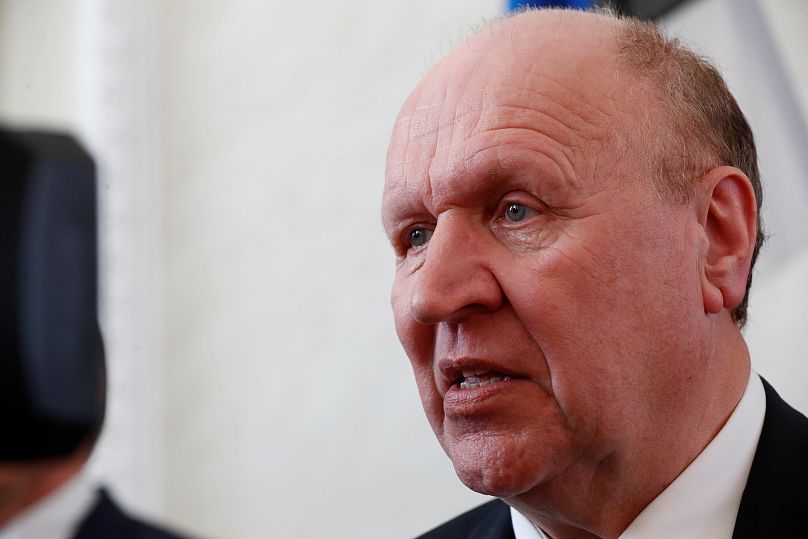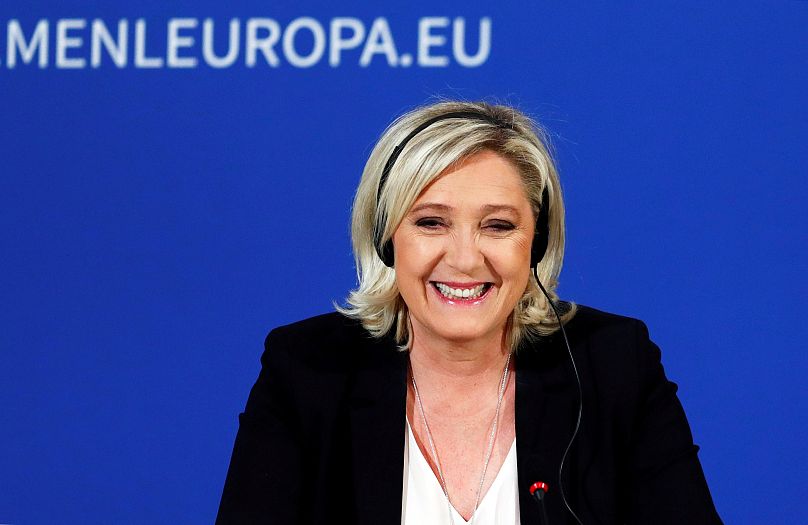Estonia jumped to use the euro currency, has low unemployment, a thriving start-up scene and few immigrants. So why is it flirting with right-wing nationalism?
For years, many Estonians saw the Behemoth next door, Russia, as the creeping threat to its flourishing statehood.
But these days, foreigners, the LGBTQ+ community, feminists, and – by default – liberals are raising the hackles of nearly 18 percent of Estonian voters, creating an increasingly turbulent situation in the country.
The fear of Russia that prompted this small Baltic country to become staunchly pro-EU and look West has now been subsumed by a fear of migration, with voters leaning towards a far-right, pointedly nationalist, eurosceptic and ethnocentric party, just as European elections loom.
Late last month, the Conservative People's Party of Estonia (EKRE) was voted into government for the first time, winning 19 seats in the country's 101-seat parliament, and entering into coalition with the Centre Party, propelling it into power.
“Voters hate Islamic terrorism, voters hate everything that destroys Christianity, hate multicultural policy,” said Inge, an older EKRE supporter based in Tallinn. “Do you realise it’s the destruction of the white race?”
However, the party also appeals to a broader sense of Euroscepticism.
“I have realised that EKRE’s main goal is to avoid the EU becoming a federal state,” added Lii Villenthal, another Estonian EKRE voter, largely based in Luxembourg. “As for immigration, it is easier to prevent things than to stop or turn them around. Politics has to look ahead … you must have seen what’s going on in Britain, Germany, France and Sweden.”
Migration 'more of an issue'
The cross-border crisis of 2015 saw almost a million migrants and refugees arrive in Europe, mostly from Syria, Iraq and Afghanistan. Estonia, with a population of just over 1.3 million, took in only 206 as a consequence of EU quotas. Yet the right still fears being overrun.
“Ethnonationalism is more and more a part of their ideology and platform,” said Louis Wierenga, a junior research fellow at the University of Tartu who studies EKRE. “[Immigration] is more of an issue than the Russian speakers.”
“Not having a similar situation to Sweden and Germany in terms of a large number of Muslims and ethnic others seems to be higher on their agenda.”
EKRE has promised to protect an “indigenous” Estonia. Martin Helme, the new minister of finance and son of EKRA chairman Mart Helme, stated that he wanted Estonia to be a “white country” in a 2013 television appearance, while the party remains openly critical of feminism, same-sex marriage and the media.
Analysts say that because EKRE now runs some key ministries, the focus in the NATO-member country is shifting from its traditionally anti-Russia and pro-western focus.
In April, EKRE announced its intention to join a right-wing alliance if they secure an MEP in the impending EU elections, led by Italy's Deputy Prime Minister Matteo Salvini and including Germany's far-right Alternative for Germany (AfD). “If EKRE gets a seat [in the EU elections], they will be in a pro-Russia group,” said Wierenga.
The focus of migration may be amplified due the clear international preoccupation. Chatham House's James Sherr says it would be "a mistake to say that EKRE supporters view the migrant threat as more important than the Russian threat."
He cites two reasons:
"First, EKRE itself is very hostile to Russia. Second, its anti-migrant rhetoric is focused as much on Russian (and Ukrainian) workers as on non-Europeans. One of EKRE's most prominent figures even referred to the established ethnic Russian population as 'parasitical scum'. What is new is that Estonia's well established liberal values are now being challenged by Estonians themselves. The national instinct is to unite in response to threats from abroad. That perhaps is one reason why the resentments of rural southerners have been largely ignored. The fact that 24% of ethnic Estonians now support EKRE has come as a shock."
Le Pen finds an inroad
Marine Le Pen, the leader of French far-right party National Rally (formerly known as National Front) also met with EKRE leaders in Tallinn on Tuesday, as part of a mission to reach far-right parties in eastern Europe ahead of the European Parliament elections.
While there, she took a selfie with Ruuben Kaalep, a 25-year-old EKRE MP while making the “OK” gesture, widely considered to have white supremacist connotations. She later insisted he delete the picture from his Facebook page.
“I was in a selfie at his request, making a signal that to me means ‘ok’,” Le Pen later told AFP, adding “I was later told that it may have an alternative meaning,” and that was why she requested its removal.
Le Pen has previously expressed support for Russia’s 2014 annexation of Crimea, so many are stunned that Estonia, a country so firmly in the bloc – and one that unlike other states jumped to use the euro currency, has low unemployment relative to the continent, a thriving start-up scene and so few immigrants – could so successfully flirt with populism and right-wing parties that have some pro-Putin leanings.
After the collapse of the Soviet Union in 1991, the small Baltic nation transformed itself into a prospering economy focused on clean industry such as tech. But it also saw gains that failed to trickle down to all areas of the country, especially rural regions. Older people, especially, felt left behind, and many of this segment felt threatened by liberal legislation such as 2014 legislation in which Estonia authorised same-sex civil unions.
“[EKRE] really worked hard to make contacts with these people,” said Leif Kalev, a professor at Tallinn University’s School of Governance, Law and Society. “They really went to the countryside, even small localities, were present, and in this way they somehow got a sufficient trust base.”
“They have appealed to a rural, disaffected voter base through their populist, anti-immigrant, promise-everything (lower taxes, increased benefits) rhetoric,” added Vello Pettai, Professor of Comparative Politics at the University of Tartu.
NATO
Estonia, although small, is an important country for the EU and NATO on the far eastern border of both blocs: sharing a border with Russia, the country plays a key role in European security. It is currently home to 300 French soldiers which arrived in April to serve at the army base in Tapa, a town of around 5,000 some 80km east of Tallinn.
There are also around 700 British troops stationed in the country as part of NATO’s Enhanced Forward Presence.
As a NATO member, Estonia is covered by the alliance’s Article 5, which means that an attack against one ally is considered as an attack against them all, and so even local issues can snowball into geopolitical problems with global repercussions.
While EKRE differs somewhat from its counterparts in France, Italy or Hungary in that it’s not extending a fig leaf to Russia, it’s still showing willing to cooperate with parties on the continent that might. The present-day threat of Russian military incursions into its Baltic neighbours remains low, but Estonia still remains vigilant and EKRE’s new status in government benefits its neighbour by sowing divisiveness at home. “In the whole whiteness discourse, Slavs are white,” said Wierenga. But EKRE still aims to “preserve Baltic people and languages and to protect against a resurgent Russia and western liberalism.”
Ethnic Russian and 'grey passports'
Around 27 percent of Estonia’s population are ethnic Russians, many of whom have been successfully integrated. Around a quarter of them are “grey passport holders” – that is, without Estonian citizenship yet still resident in the country. Tensions have occasionally flared, such as in 2007 after the removal of a Soviet WWII monument from the city centre, but generally the local populations coexist in peace.
Despite EKRE’s very recent ascension, the party's has already seen one minister step down after one day in office and its leader embroiled in a scandal for calling the country's president an “emotionally heated woman.”
Journalists in the country have been threatened physically and say they have been pressured to censor their criticism of the new party in a climate which has made people more comfortable pushing far-right views.
Vilja Kiisler, a liberal journalist with the privately-owned daily Postimees, even had to go to police after receiving an unprecedented wave of rape threats. Some messages were standard criticisms of her work, but “some of them said that 'you will be beaten up if you continue like this. You will be raped. You just have to apologise',” she alleged.
Mart and Martin Helme have also come under fire both at home and abroad for making the same allegedly white supremacist “OK” gesture at their swearing in ceremony. Martin Helme will meet with other EU finance ministers this month.
What now?
Analysts suggest that Estonia’s future path depends on how EKRE transitions from being in the opposition to being in government.
“When they were in the opposition, they were just a small voice,” said Pettai. “But now they are part of the government, and thereby cause lots of consternation among Western allies as well.”
Prime Minister Jüri Ratas believes this transition will be long and difficult.
“The situation is fairly hysterical,” said Ratas on a local radio show in early May. “Our state and people are too dear to come to blows on these 45,000 square kilometres. This very polarising and turbulent situation needs to be calmed down.”














